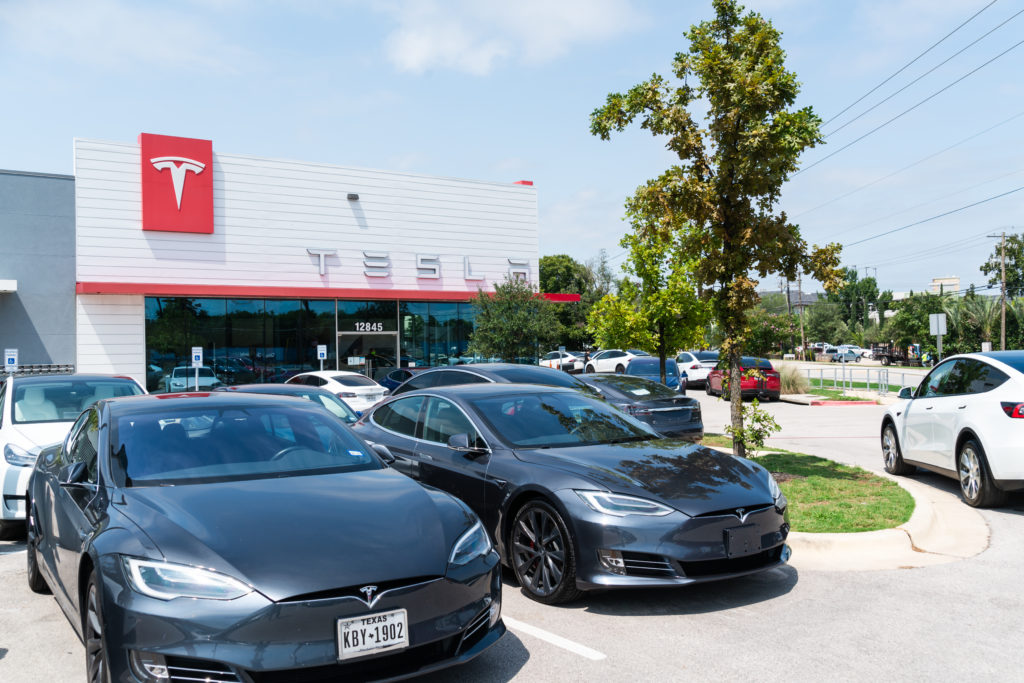
Total losses: ACV and state charges, prepaid future OEM features
By onBusiness Practices | Insurance | Legal | Market Trends | Technology
We’ve been focusing on total loss valuations lately after consumer advocates have raised the prospect of totals being flipped back to repairable vehicles upon reevaluation of pricing.
Our coverage so far has deal with overall actual cash value assessments — after all, that final dollar value determines whether you’ll be repairing the vehicle or watching it flatbed to auction. But a couple of questions about the inputs contributing to that number recently caught our attention, and we thought shops and customers might be interested.
Courts: Insurers don’t have to cover costs owed states
Two policyholders have appealed their class-action lawsuit after the Massachusetts Suffolk County Superior Court ruled this spring that Plymouth Rock Assurance correctly excluded titling, registration and inspection costs from totaled-vehicle ACVs.
The lower Massachusetts court’s decision regarding the regulatory expenses echoes a 2020 Fifth Circuit Court of Appeals decision on taxes and fees associated with getting a replacement Texas vehicle.
The Fifth Circuit in April 2020 ruled that the U.S. Western District of Texas was right to reject a class-action lawsuit against Elephant Insurance. Two Texans had sued the insurer “due to Defendant’s practice of refusing to pay full ACV Sales Tax and mandatory transfer fees to first-party total-loss insureds on physical damage policies containing comprehensive and collision coverages.”
The appellate court agreed that the policy and Texas law held that Elephant didn’t owe those costs.
The expenses disputed in Singleton and Cooper v. Elephant and Konsevick and Bartini v. Plymouth Rock might not have been enough to tip many vehicles into the repairable category, even though both Texas and Massachusetts have total loss thresholds of 100 percent. But knowing the case law might still be helpful to body shops if they or their customers have questions on these points.
The plaintiffs in Singleton v. Elephant argued that at an average vehicle value of $15,000, buying a replacement vehicle would hit a consumer with $937.50 worth of Texas sales tax per claim — not counting local taxes. Also, the state would have imposed a minimum of $35.50 in title and tag transfer fees.
The plaintiffs in Konsevick v. Plymouth Rock said the insurer had included Massachusetts sales tax in its ACV calculations. But they felt the insurer should have covered at least $100 in other state charges related to getting a replacement vehicle.
Massachusetts charges a minimum $85 in title-related fees, and another $25 if the totaled vehicle had a lien, according to the lawsuit. It said registration transfer fees are $25, and a new registration was $60. Getting a vehicle inspection in Massachusetts costs at least 35.
The Fifth Circuit’s March 2020 decision acknowledged that “purchasing and registering the replacement vehicle requires the payment of taxes and fees to the state” and noted that the Texas plaintiffs appealing the case argued that insurance is meant to restore people to the status quo before their loss.
“But what controls is the text of the specific policy in question, not the purpose of insurance generally,” the court wrote. That policy has a limit of liability, it said.
The Elephant policy didn’t define actual cash value except to say it was “determined by the market value, age and condition.” So the Fifth Circuit looked to Texas law, which it says defines actual cash value as fair market value and defines fair market value as the price involved when a willing buyer buys something from a willing seller.
“This definition plainly excludes taxes and fees that are remitted to the state,” the 3-0 per curiam opinion states. “That the state collects taxes and fees from the buyer is irrelevant to the question of fair market value because those amounts are not part of the price paid to the seller. Appellants rightly observe that negotiating parties may consider the tax rate when agreeing on a price, but that indicates only that taxes are a factor that influences market value, not that taxes should be added to the price when calculating market value.”
Suffolk County Justice Robert Gordon said the Plymouth Rock standard policy doesn’t define actual cash value. But he noted that Massachusetts regulations say an insurer calculating cash value must consider retail book value; “the price paid for the vehicle plus the value of prior improvements to the motor vehicle at the time of the accident, less appropriate depreciation”; deductions for “prior unrelated damage”; and “the actual cost of purchase” for a similar vehicle on sale now.
Since the “Standard Policy” language is controlled by the state, Massachusetts legal precedent holds that the courts shouldn’t automatically evaluate ambiguities against the insurer and in favor of the policyholder, according to Gordon. (Normally, ambiguities in a contract are viewed in favor of the person who didn’t write it.)
“As an initial matter, the Standard Policy does not expressly define ‘ACV,’ and is devoid of any other terms therein suggesting that ACV is meant to include regulatory fees,” Gordon wrote. “The Court does not construe the Policy’s silence as to regulatory fees as necessarily excluding them from ACV; but it does interpret such silence to mean that the Policy does not require the determination of ACV to include them.” (Emphasis his.)
“The absence of any language in the Policy requiring regulatory fees to be factored into ACV is consistent with the fact that the ‘value’ of a vehicle, at the time of a collision or otherwise, never includes the costs of its title, registration and inspection, because the value of those items is non-transferable.” (Emphasis his.)
According to Gordon, the plaintiffs argued that regulatory fees are part of the “actual costs of purchase” mentioned in Massachusetts law because you can’t buy and operate a car without them. But he ruled that cost meant the amount paid to the seller.
“As set forth ante, regulatory fees do not add value to an automobile, are not transferrable to a purchaser, and must be paid to the Commonwealth rather than the seller.” Thus, “actual cost” excluded those fees. (Emphasis Gordon’s.)
An attorney for the plaintiffs in the Konsevick case said he couldn’t comment further.
Exploring Tesla FSD, other prepaid features not yet activated
Another potential ACV question might arise from automakers’ ability to update a vehicle’s software over the air and tie features to a VIN number.
This means, for example, that an OEM could drive options sales by allowing customers to prepay for a future feature at a discount today, or perhaps at the same price but with the convenience of having that digital capability immediately unlocked at launch.
The latter is happening today with digitally distributed video games; customers buy and download them in advance. At the appointed release date, the software company flips a switch, the prepurchased game goes live, and the gamer can immediately start playing while fellow enthusiasts are still standing in store lines or waiting for files to download.
The former is also happening today. Tesla, one of the pioneers of over-the-air vehicle software updates, has said that its current vehicles carry the necessary hardware for “Full Self-Driving.” The company is just working on the software and waiting on regulators.
But it has been letting consumers purchase the feature anyway and lock in a price. At some point in the future, Tesla promises, it’ll be ready to unlock the feature for all those preorder adopters.
Until then, customers have spent thousands on an option for their vehicle that they can’t use yet — but will be able to someday.
This raises an interesting total loss question, we realized after reviewing a related post on the Tesla Motors Club message board.
The user “RiatGray” on June 12 that a beloved 2017 Tesla Model S had been damaged to the point they felt it was unclear if it would be a total loss or a repairable vehicle. They observed: “I know I’m going to loose FSD upgrade… that’s was 7k last summer. I bought it late. And I don’t think I’ll be able to buy another MS (don’t have that kind of money right now).”
We wondered if the user was right about this or not in the circumstances of a total loss. Could a Full Self-Driving preorder be transferred to a new Tesla if the existing Tesla were totaled? Would Tesla refund the money? Or would the thousands spent be part of a total loss valuation and settlement?
So we thought we’d throw the question out there to a few knowledgeable folks and see what they had to say.
A query to a media inquiry email on Tesla’s website was unreturned. We also unsuccessfully put the question to Twitter Tesla CEO Elon Musk, who sometimes is receptive to tweet Q&A exchanges. We then asked a Tesla Vehicle Support representative via the company’s customer chat option.
“Full self driving beta among other upgrades can only be returned via tesla.com within 48 hours of purchase at this time,” the Tesla rep replied.
So a refund was impossible after the first 48 hours, and the customer would need to file a claim for the FSD upgrade cost with their insurer?
“That’s correct, because I don’t have access to verify configurations at this time, this would be the course of action to address this concern,” the Tesla rep replied.
We also asked the Insurance Information Institute how an intangible prepaid feature like this would be handled in a total loss claim. It seemed like an extended warranty paid in full upfront might be another example of such a scenario, we suggested.
“Certainly an interesting question, which hasn’t been posed before,” media relations Vice President Loretta Worters wrote in an email. “You are correct that if there is property damage (other than the vehicle itself), it would be covered under the property portion of your auto policy, such as an infant car seat.
“If there is a feature on the car that has been damaged, I would imagine it would be an obligation of the insurer to pay for that damage, irrespective if it isn’t in use at this time.”
But Worters suggested we contact insurers that cover Teslas about the parameters of their individual policies.
We tried the Top 6 carriers, but received no answers other than State Farm saying it had nothing to share. The Independent Insurance Agents & Brokers of America also didn’t respond to an email asking about how this issue would be handled with the insurers.
Total loss valuation experts in various parts of the country had differing takes when the question was put to them.
“So unused warranty is returned,” North Carolina-based Collision Safety Consultants CEO Billy Walkowiak wrote in an email June 28. “If they bought the $10,000 fully automatic self driving then that’s added value. I argued once that the customer purchased his new Tesla and got free super charging for life. Once it was totaled it was not transferable. He could sue the other driver but his company didn’t owe him.
New York-based ZB Claim Services President John Walczuk was skeptical FSD could be recouped.
“Regarding the issue you have presented I would guess that such an option might be viewed in the same light as an extended warranty,” Walczuk wrote in an email June 28. “Unfortunately we do not have any parameters in which we could measure its value.
“When measuring an extended warranty and its residual value, that is not part of the actual vehicle total loss or ACV that an insurance carrier covers, but you can calculate the unused portion. It is a separately pursued amount, not covered by the insurance carrier.
“If you were to purchase a vehicle and the manufacturer states 100 thousand miles and you total at 50,000 there is no value to pursue. Why would this be different?
“Questions such as transfer ability would enter any discussion as to the future viability of the unknown. Is it saleable such as a door from a salvaged vehicle? Is it a module that could be plugged into another Tesla? WE are talking about software with this Tesla offering.
“My take is ZERO value if your Tesla is totaled. …
“My position would be zero value, unless saleable and usable on another vehicle. This is not a child seat, where the manufacturer of the item has made the carrier aware that they will be liable if the safety features are compromised and the carrier has said we are not fighting that fight. …
“This is an easy one and I would want to be on the carriers side as far as value.”
Texas-based Auto Claim Specialists general manager Robert McDorman felt such an option would be a covered loss.
“Options such as Tesla Full Self-Driving options are a covered loss and part of the Actual Cash Value settlement process,” he wrote in an email June 29.
“Extended Service Contracts and Pre-Paid Maintenance if these do not have a prorated cancelation clause then this loss is also a covered loss. I deal in this area daily on the GAP claims we handle.”
Auto Damage Experts President Barrett Smith suggested it might need to be an additional aspect of coverage agreed to by the insurer up front.
“Under first party- the insurer owes for the Actual Cash Value of the vehicle and as such, they would need be made aware of the added monetary risks, and agree to cover them, and affix a premium for same,” Smith wrote in an email Friday.
“Under third-party, the at-fault party would owe for all costs associated with the loss, including economic damages such as Diminished Value, Extended warrantees etc.”
He noted in a June 29 email that certain physical upgrades to a vehicle might need additional coverage.
“Generally, under first party coverage, accessories, (permanently affixed/attached), may be covered if the policy had a certain allowance, or special endorsement for ‘optional equipment coverage’ to cover such things as custom lighting, wheels/tires, exhaust, sound systems etc.,” Smith wrote. “Other personal items may be covered under one’s home owner coverage. Child car seats are likely to be covered.”
Auto Damage Experts operations president David Smith felt the upgrade would be part of an appraisal.
“If I was appraising the value it would definitely be taken into account,” David Smith wrote in an email Thursday. “It is a value add.”
So all that’s some food for thought. As more OEMs gain the capability to sell customers digital rather than physical features, it’ll be interesting to see how these items tend to shake out in claims where the vehicle isn’t repairable.
Images:
What elements count as actual cash value in a total loss and which ones don’t? (wenmei Zhou/iStock)
Based on recent Fifth Circuit and Massachusetts Suffolk County Superior Court decisions, certain costs due Texas and Massachusetts in buying a new vehicle might not be part of an actual cash value owed by an insurer. (Nuthawut Somsuk/iStock)
A Tesla facility and Tesla models in the Austin, Texas, area on Sept. 11, 2020. (RoschetzkyI/iStock)


